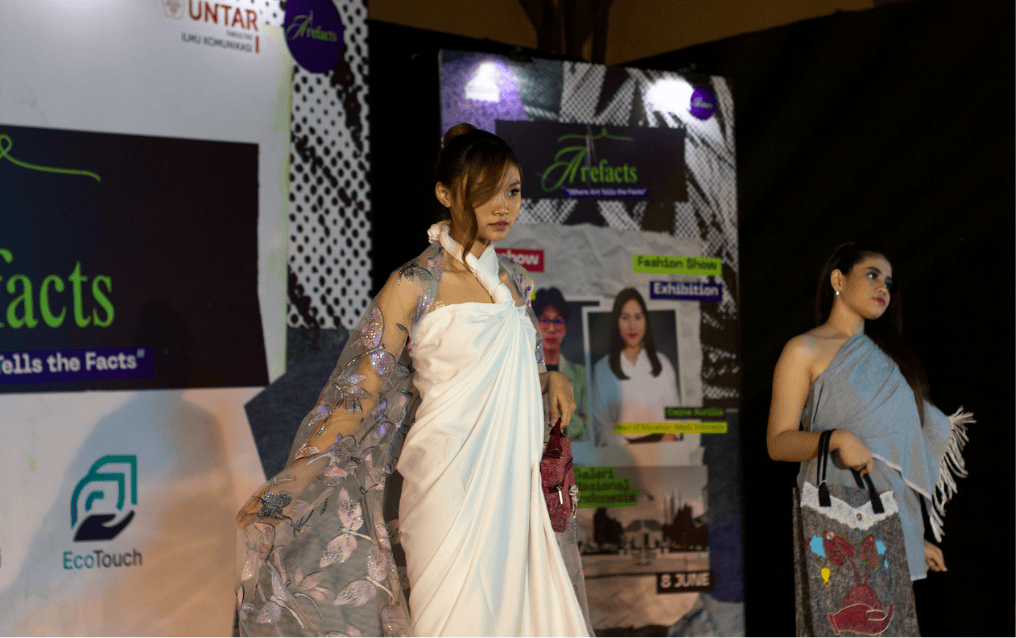Jakarta, June 8, 2025 – In response to growing concerns over the environmental impact of the fast fashion industry, Artefacts (Art Tells the Facts) emerged as an educational and artistic platform that encourages cross-sector collaboration in promoting a sustainable lifestyle. Held at the National Gallery of Indonesia on June 8, 2025, the event carried the theme “Trendy Today, Trash Tomorrow”—a critical reflection on the unsustainable patterns of fashion consumption.
The issue of fashion waste has become a serious environmental concern in Indonesia. The rapid growth of the fast fashion industry—driven by swiftly changing trends and excessive consumer behavior—has significantly contributed to the rise in textile waste.
According to data from the Ministry of Industry, Indonesia’s textile and textile product (TPT) sector generates approximately 1.8 million tons of waste annually, with 60 to 70 percent originating from the fast fashion industry. This underscores the urgent need to steer the fashion industry toward more sustainable practices.
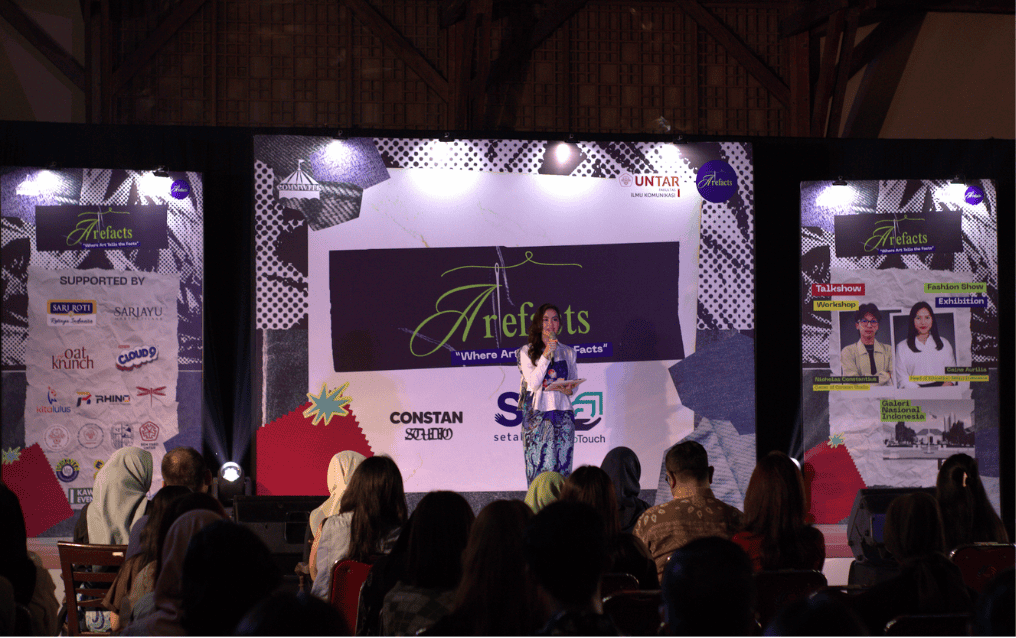
Pembukaan Acara Artefacts
“Through a collaborative approach centered on creativity and education, Artefacts is envisioned as a strategic platform to shift public perception about fashion waste—showing that secondhand clothing is not merely trash, but a valuable resource that can be transformed into meaningful works of art,” said Salsabila Khalfian, Chair of Artefacts, during the opening ceremony at the National Gallery of Indonesia on Sunday (June 8).
Artefacts features four main segments: Art Exhibition, Fashion Show, Panel Talks, and Workshops—each designed to merge environmental awareness with creative expression. These events aim not only to improve public literacy on fashion waste issues but also to encourage active participation in sustainable practices.
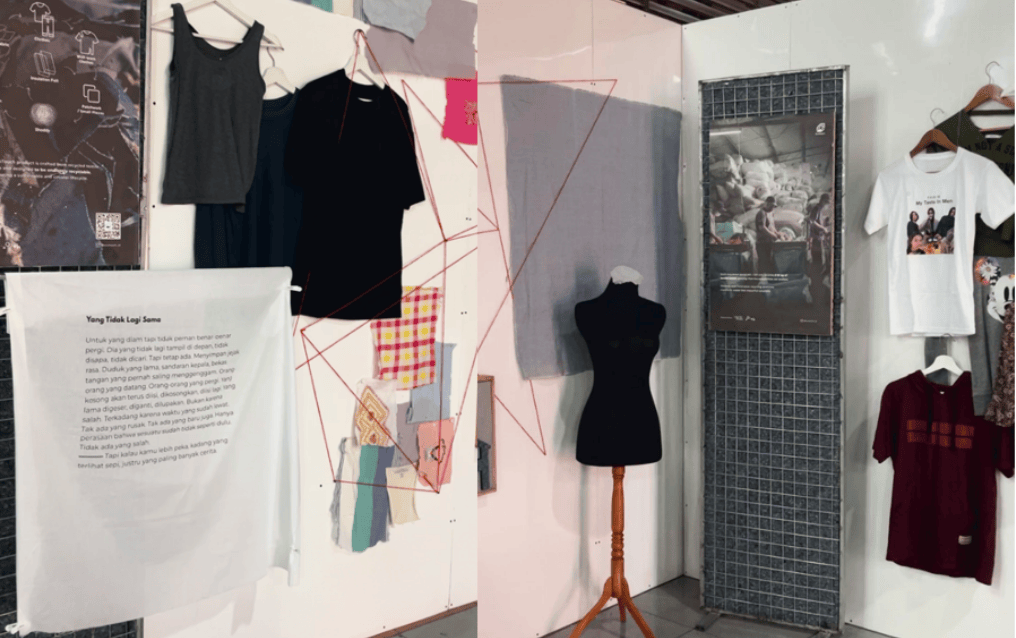
Art Exhibition Artefacts
The art exhibition showcased installations and repurposed fashion materials, transformed into artworks with strong ecological messages and artistic value. The upcycled fashion show presented collections that proved sustainability and aesthetics can coexist. Meanwhile, panel discussions featured industry figures committed to circular economy principles in their business practices.
As a commitment to sustainability in fashion, Artefacts also hosted a Free Repair Booth featuring local tailors. This initiative not only attracted visitors but also served as a concrete step in supporting local micro-enterprises and promoting habits that extend the life of clothing. The booth aligned perfectly with the event’s mission to encourage wiser fashion consumption and a shift toward more responsible, sustainable practices.
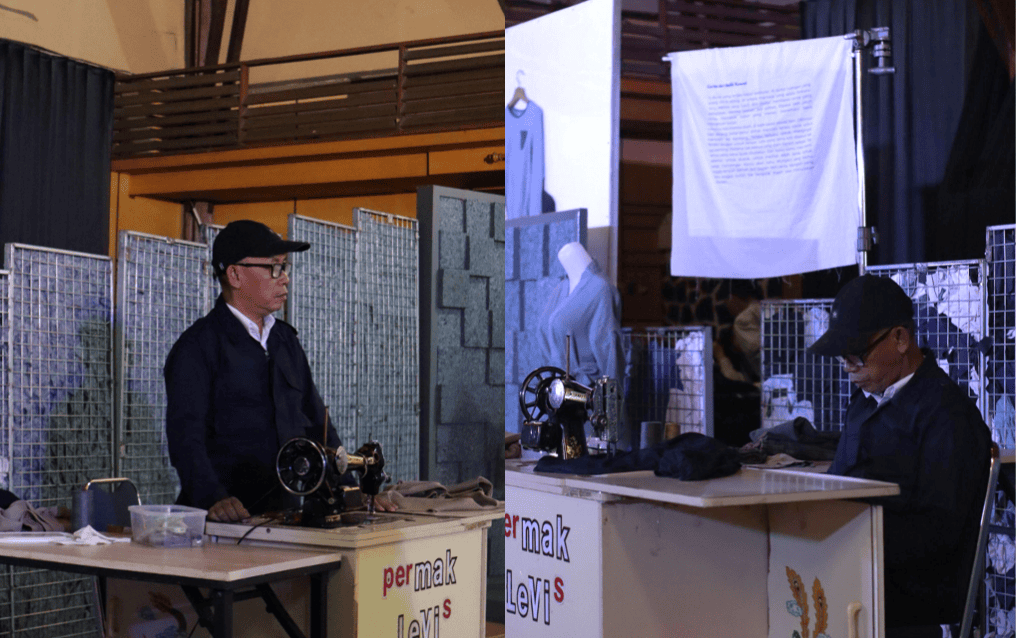
Penjahit dan Reparation Booth
During the Panel Talks session, Caine Aurilia, Head of Education at Setali, emphasized the importance of shifting consumption patterns. “Fashion waste is not only about production—it’s also about consumer choices. Public education is key to encouraging a more responsible lifestyle,” she stated.
Meanwhile, Nicholas Constantius Kadarisman, founder of Constan_Studio, highlighted that upcycling is not only environmentally friendly but also a source of innovation in fashion. “Sustainable design is the future of the creative industry. Textile waste doesn’t mark the end of a product’s value—but the beginning of a new transformation,” he noted.
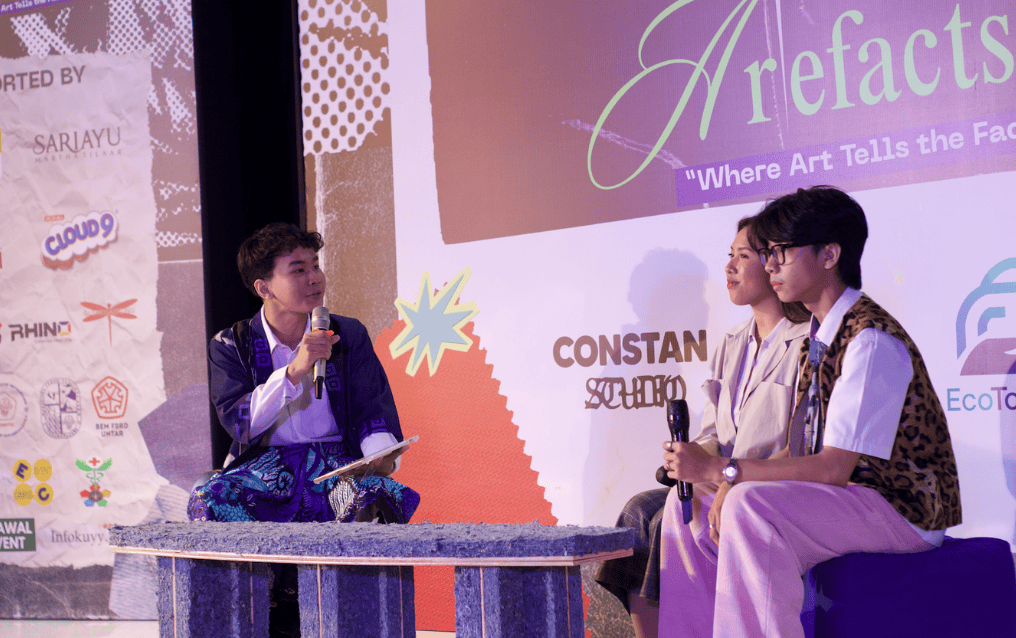
Panel Talks
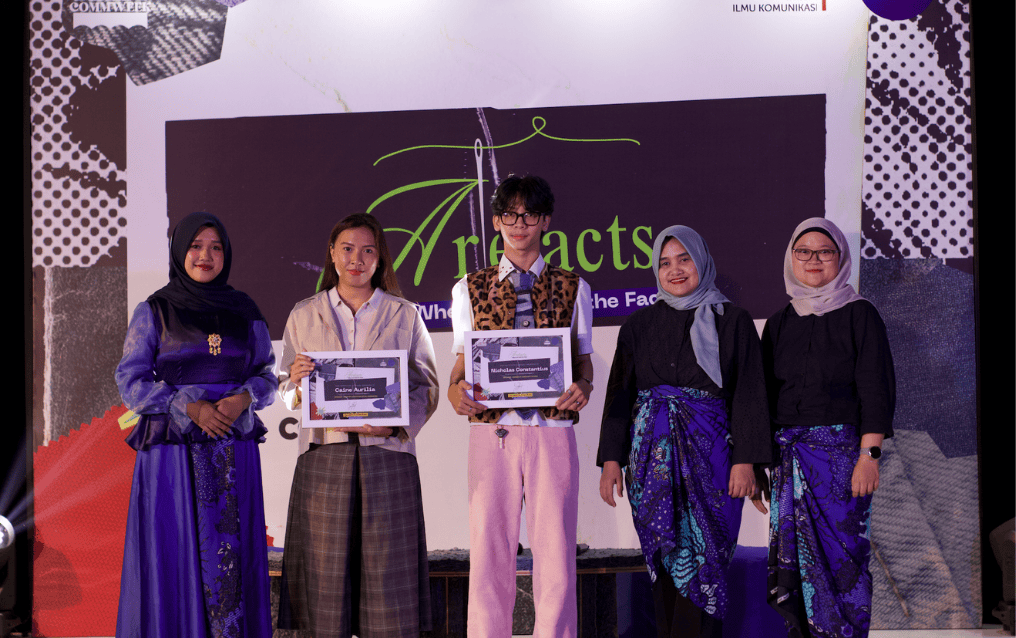
Bersama Kolaborator
In a hands-on workshop with EcoTouch, participants learned how to turn discarded fabrics into tote bags using patchwork, embroidery, and hand-painting techniques. This activity served as a tangible example that recycling practices can be adopted by anyone—starting from even the simplest initiatives.
Supported by collaborators such as Setali, Constan_Studio, and EcoTouch, Artefacts delivers a powerful message: tackling fashion waste requires collective and education-driven solutions. Through art and active engagement, Artefacts invites the public to embrace sustainability not just as a trend—but as a lifestyle.

